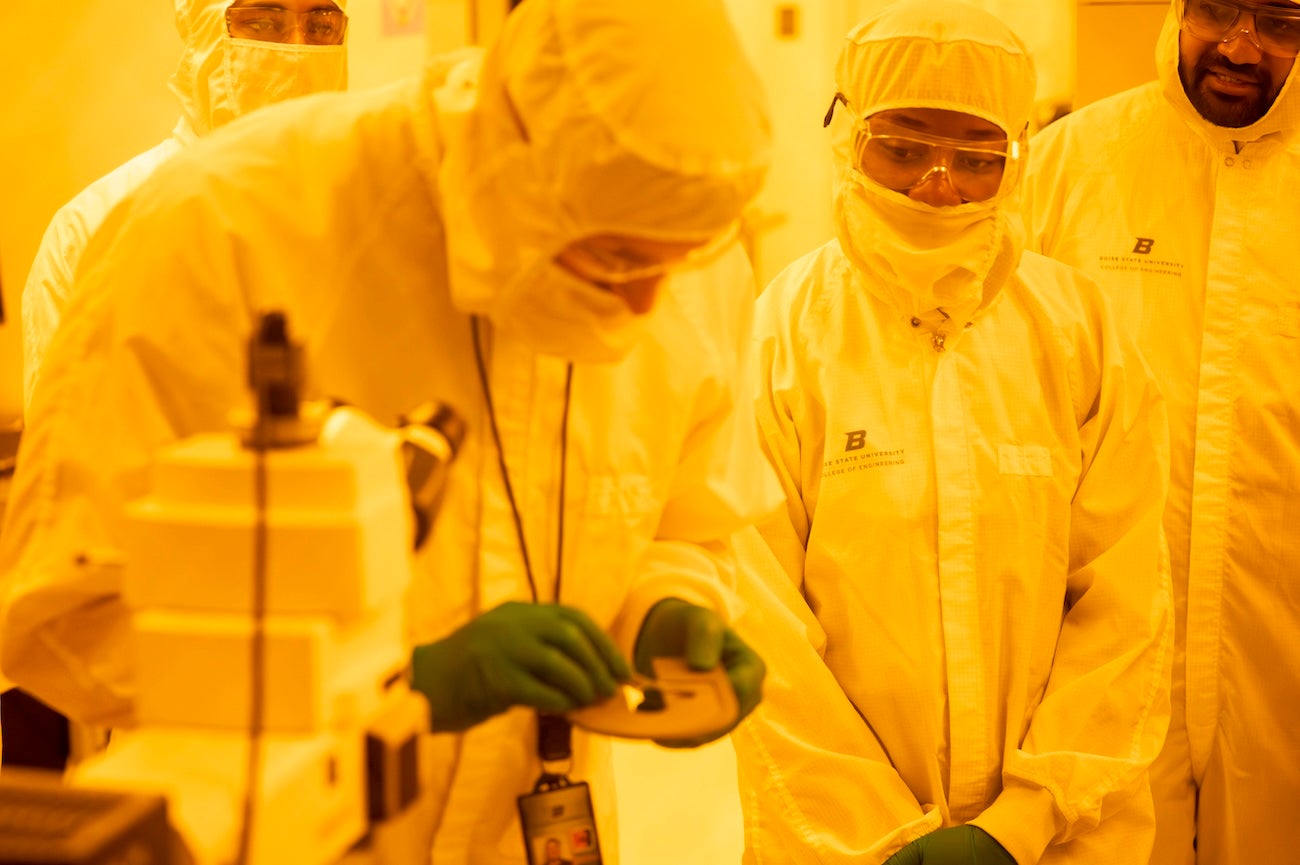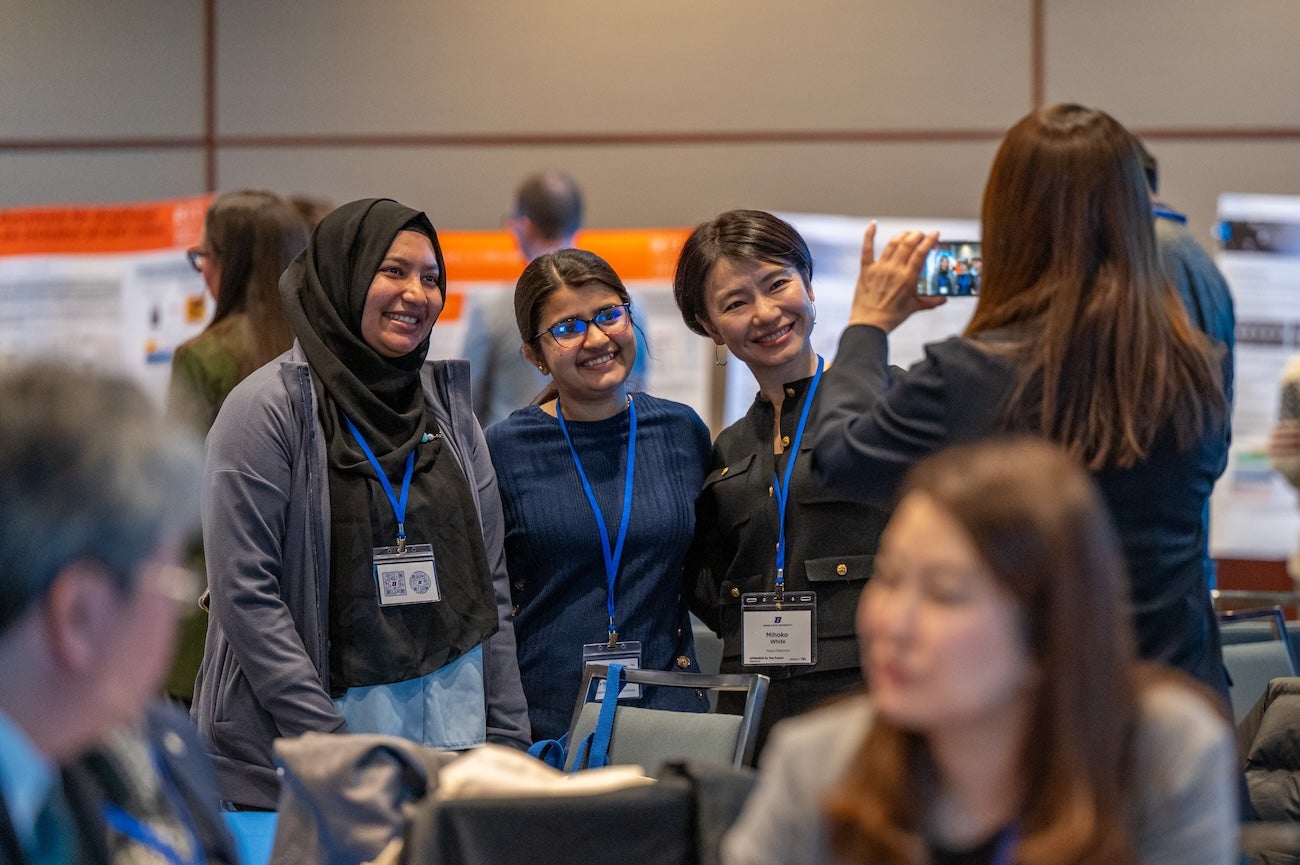
University, industry and government partners from the United States and Japan gathered in April 2025 at Boise State University to advance semiconductor and microelectronics education, work that is critical to making Idaho, Japan and the United States globally competitive.
“The work we complete together creates real, tangible benefits — for students, who gain pathways into high-wage, high-demand careers; for faculty, who engage in cutting-edge work with real-world impact; and for our research enterprise, which thrives when rooted in relevance to solving global challenges,” said Nancy Glenn, Boise State’s vice president for research and economic development. “Through education, training and targeted research, we’re building talent pipelines, launching new programs, and partnering with companies and organizations to respond to international and national priorities with local action.”

This UPWARDS for the Future event was the fourth workshop of its kind and the first at Boise State. It included a tour at Micron and a full-day conference with faculty and staff from each university. For the first time, it also included a week of graduate student presentations and activities.
Micron and Tokyo Electron launched the U.S.-Japan University Partnership for Workforce Advancement and Research and Development in Semiconductors (UPWARDS) for the Future Network alongside 11 university partners. This partnership cultivates a robust and highly skilled talent pipeline for the semiconductor workforce and drives emerging research, while increasing the pipeline of students studying a semiconductor curriculum.
Boise State President Marlene Tromp connected the university with the UPWARDS program in May 2023 while attending the G7 Summit in Hiroshima, Japan. The program has grown to include 11 universities, each pursuing new avenues of research and preparing students for future careers.
In Boise State’s Semiconductor 4 All program, semiconductor and microelectronic educational pathways extend from children in K-12 institutions all the way to continuing education and opportunities for industry professionals. To date, the university has engaged more than 11,000 K-12 students through this programming. The Institute for Microelectronics Education and Research, led by Dan Lamborn and his team, coordinated the UPWARDS event and administers the Semiconductor 4 All program.
Boise State is invested in advancing the semiconductor industry in Idaho. Within the College of Engineering, undergraduate and graduate students working with Lan Li have completed exchanges between research groups at Boise State, Nagoya University and Kyushu University. Kurtis Cantley and Karthik Srinivasan also have emerging research partnerships with Kyushu University on semiconductor devices for neuromorphic/in-memory computing, and Elton Graugnard with Hiroshima University in area-selective thin film processing.
A research team led by professor Elton Graugnard works closely with technical staff at Micron, Tokyo Electron, and several other companies including EMD Electronics, Intel and IBM to align research activities to their challenges, and prepare students with input from industry professionals.

With membership in the National Semiconductor Technology Center, and three Manufacturing USA Institutes including NextFlex, SMART USA, and CyManII, and funded projects with the Semiconductor Research Corporation, the university is engaged with national and global competitiveness in microelectronics.
“These kinds of higher ed–industry–government partnerships are essential if we’re going to stay competitive — locally and globally,” Glenn said. “They require shared vision, trust and consistent effort, and that’s what makes initiatives like UPWARDS so exciting.”
The UPWARDS work aligns with national strategies, including efforts by the Council on Competitiveness, in which Boise State is actively involved. The council also focuses on aligning innovation, talent and investment to strengthen U.S. competitiveness in key sectors — semiconductors among them. Learn more on the UPWARDS website.